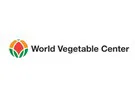The World Vegetable Center has joined a consortium of partners led by the University of California, Davis, to implement a U.S. $15 million programs for global horticulture research.
Funded by the U.S. Agency for International Development (USAID), the Feed, the Future Innovation Lab for Horticulture, will advance fruit and vegetable production, handling, and consumption to benefit communities across the globe. The five-year program will focus on horticultural and social innovations for nutritional and financial security.
Other consortium members include Florida A&M University, Michigan State University, Texas A&M, and specialists from Penn State University and Making Cents International. All bring expertise in horticulture, agronomics, agri-sociology, agribusiness, and agri-policy to the program.
“For 50 years, the World Vegetable Center’s research has provided small-scale farmers with the knowledge, skills, technologies, and opportunities to boost vegetable production and increase their incomes,” said Marco Wopereis, WorldVeg Director-General. “We are honored to partner with the Horticulture Innovation Lab to expand on and extend our expertise.”
The Horticulture Innovation Lab will consult with consortium members to determine research needs in West Africa, East Africa, South/Southeast Asia, and Central America.
To build community resilience, a holistic, inclusive, locally-led approach will be followed to develop environmentally sustainable, market-oriented production and postharvest handling methods that can provide smallholder farmers and other stakeholders in fruit and vegetable value chains more income, as well as improved access to fruits and vegetables, to better nourish their families and communities.
More than 32,000 farmers are applying or using the Horticulture Innovation Lab’s technologies, and more than 13,000 hectares of land are under new management practices.
The Horticulture Innovation Lab is a part of Feed the Future, the U.S. government’s initiative to combat global hunger and poverty. It brings partners together to help some of the world’s poorest countries harness the power of agriculture and entrepreneurship to jump-start their economies and create new opportunities.
For more information:
World Vegetable Center
www.avrdc.org
